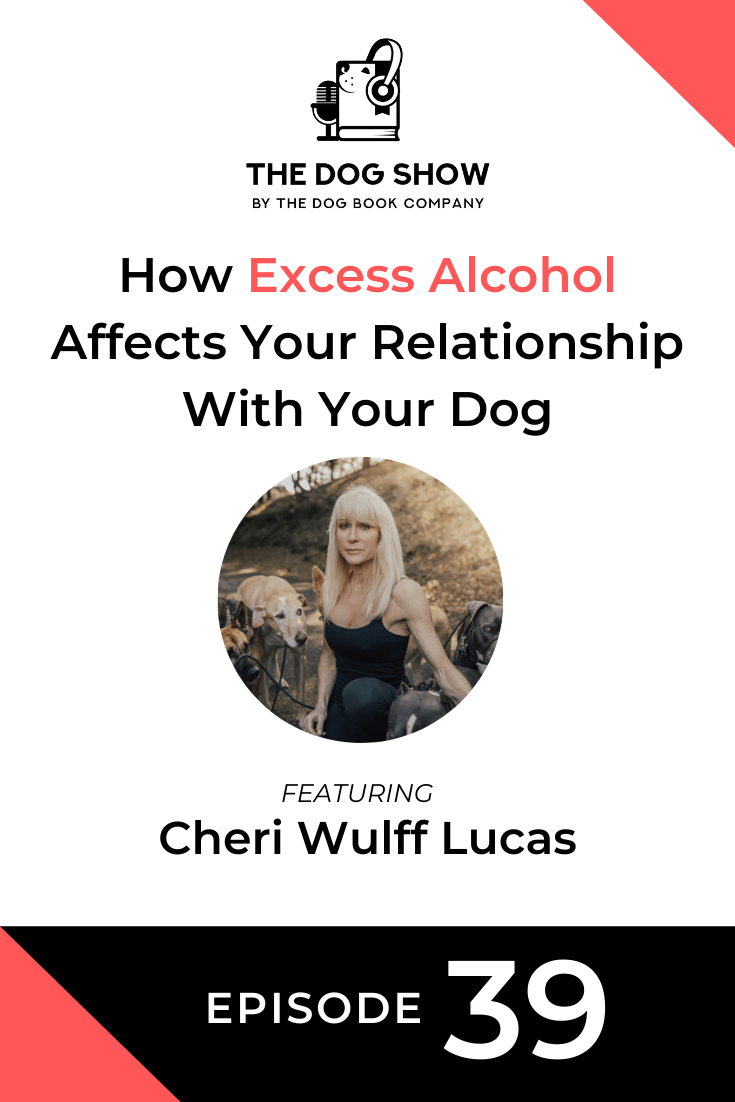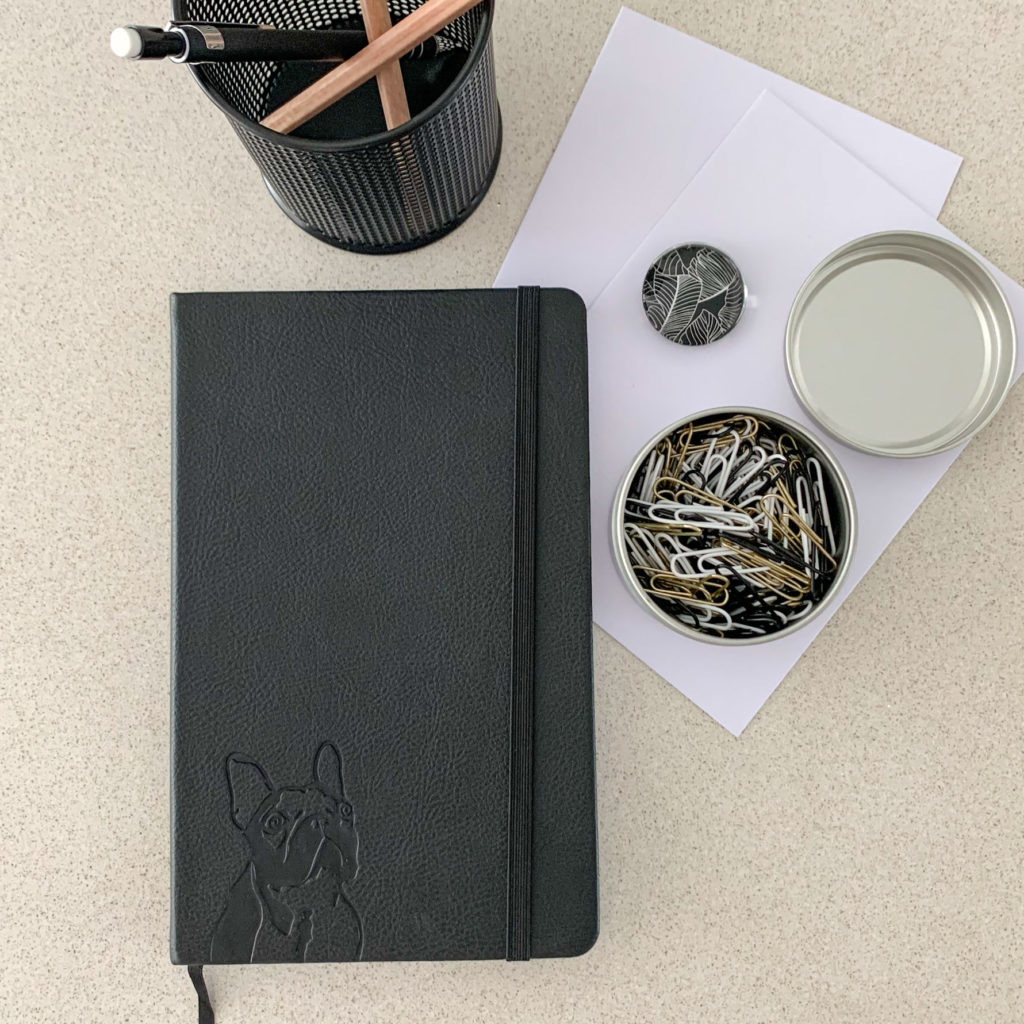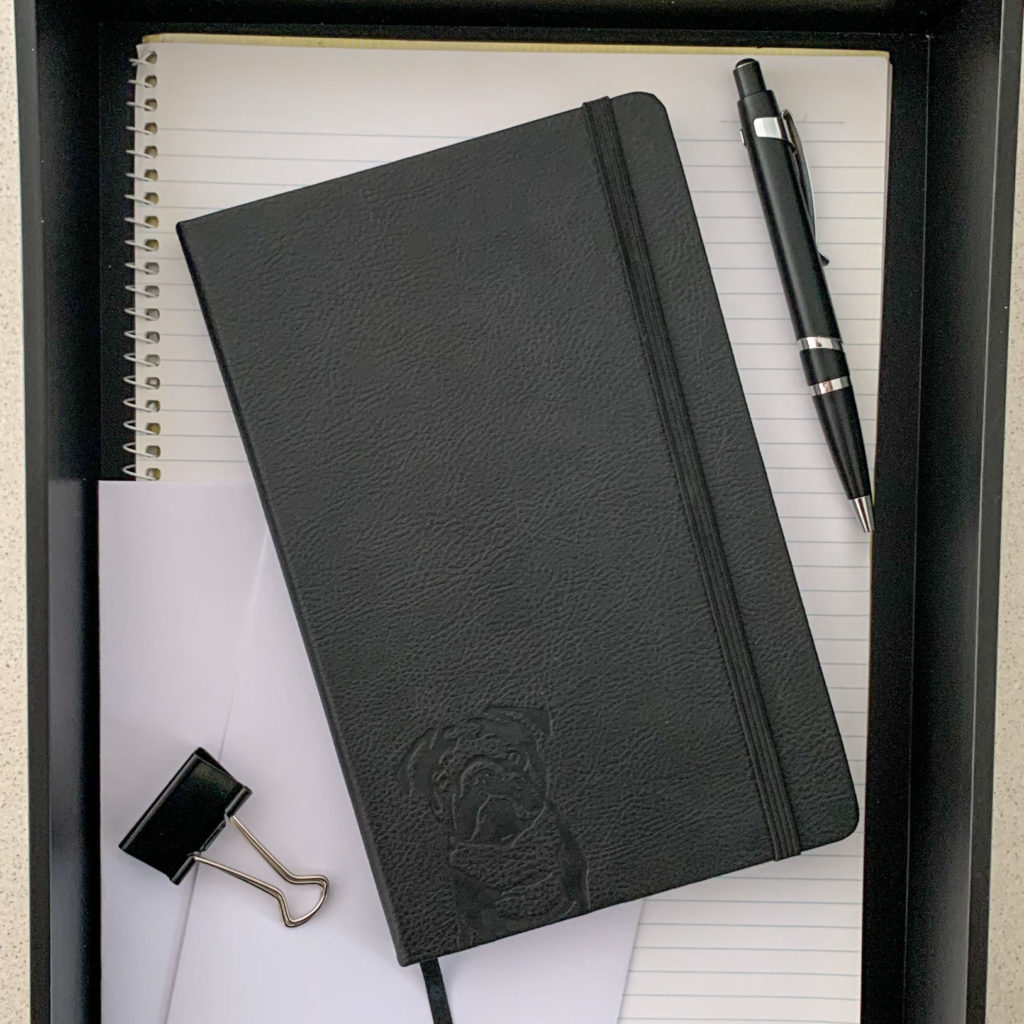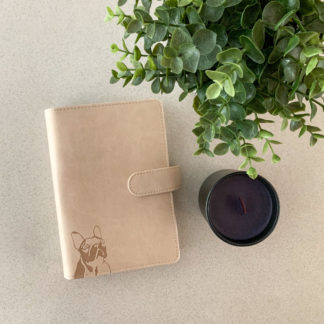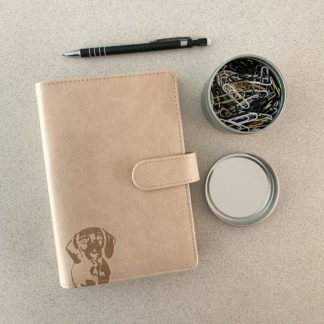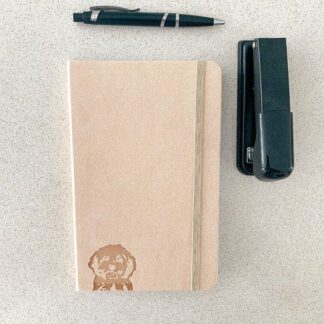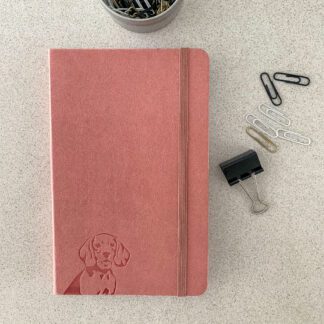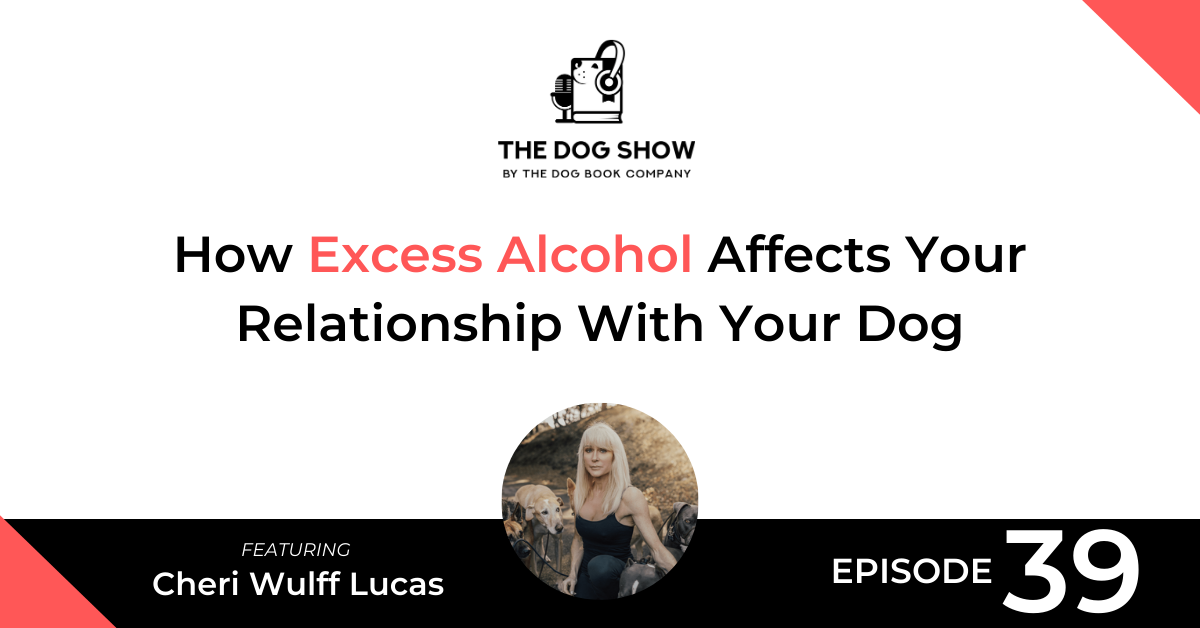
This episode of The Dog Show features Cheri Wulff Lucas. Cheri is an internationally recognized canine behavior specialist and speaker, spreading a message of hope to dog owners struggling with behavior issues from fear and aggression to fixation and separation anxiety.
Her methods are gentle, intuitive, and effective, teaching dog owners to unleash the strong, assertive leader inside of them.
In the interview, we discuss the somewhat controversial topic of how excess alcohol consumption affects your relationship with your dog.
Find out more about Cheri here:
Listen
Watch
Read
Will: This episode of “The Dog Show” features Cheri Wulff Lucas. Cheri is an internationally recognized canine behavior specialist and speaker, spreading a message of hope to dog owners struggling with behavior issues from fear and aggression to fixation and separation anxiety. Her methods are gentle, intuitive, and effective, teaching dog owners to unleash the strong, assertive leader inside of them. In the interview, we discussed the somewhat controversial topic of how excess alcohol consumption affects your relationship with your dog. Cheri, welcome to “The Dog Show” today. Thank you so much for coming on.
Cheri: Thank you. Thanks so much for having me.
Will: Yeah, I’m really interested to have a chat with you today, you’ve got a very interesting background with being a dog behavior specialist and also personally as well. So, I’m sure you can share lots of insights with our audience. We’re discussing a bit of, I guess, a controversial topic today, in terms of alcohol consumption and how to fix your dog. But before we get to that really serious stuff, I’d love to hear a bit more about your personal history with dogs. Have you had dogs growing up and everything in your life?
Cheri: Oh, yeah. My whole life I always knew that I would be somehow involved with dogs. I’ve been a pretty much an animal fanatic since I can remember, since I was a kid, but dogs in particular, yeah. And then I made it, I got into rescue first. And I actually founded a humane society, my own rescue about 30…almost 35 years ago, a long time ago. And it’s a no-kill rescue that I’ve had for a long, long time. And we’ve placed over 5,000 dogs that we pulled from either high kill shelters or strays, owners that have passed away, we’ve taken in their dogs. And that’s what got me started was rescuing dogs and then finding out I didn’t know how to resolve their behavior issues. So, you can’t place the dog when they’re not fixed. That’s sort of how the whole thing started.
Will: Okay. And did you ever hire many of those dogs yourself? Or is it more about just enabling them to go to other owners?
Cheri: No. Well, the rescue… I have acreage in California. I’ve lived here on this property for 25 years, and I have a lot of space and a barn that we modified to be a shelter that we actually turned the barn into a building with insulation and everything. So, we’ve had that there. And it’s been an all volunteer-run organization since the beginning, so all of our staff has been volunteer. And for a long time, we did fine until we hit a wall with some of the dogs that we started noticing since we’re no-kill, we never in our entire history have we put a dog down for behavioral issues, but I didn’t know how to resolve them. So, they were just warehoused here, is kind of the terminology that I would use, is that I can’t move them and start… All of a sudden, we’re starting to get full with dogs that are going to be here forever. So, I started to really search for help to try to figure out what to do to fix these dogs because just loving them wasn’t enough. It wasn’t cutting it.
Will: What were some of the main issues you would see with rescues? Was there any trends you would say with, like, the common problems that you needed to solve before they could be homed?
Cheri: Yeah. I mean, there’s a handful of… There’s, of course, what I would always refer to back then is dog aggression. A lot of times this is a whole another subject, but it was actually dog reactivity, not aggression, although it could manifest as such, but it wasn’t really dog aggression and separation anxiety. Dogs that just didn’t have any direction and they would develop sort of neurosis, you know, neurotic type behavior, especially with Border Collies, and the high drive dogs that didn’t have enough to do and weren’t stimulated mentally enough, things like that. But a lot of times, we just got good dogs that ended up in a high kill shelter and we pulled them. A lot of reasons why dogs end up with the pound, and it’s, a lot of times, not their fault.
Will: Yeah, absolutely. I think, especially with the year that we’ve had, I mean, adoption and the buying of puppies and everything has increased dramatically this year because more people are at home, which, unfortunately, I hope it doesn’t, but I feel like that could create further strain on rescues in the new year.
Cheri: Yeah. I did a video early on when the country first shut down about just for people to be very careful that they don’t let their dogs just live on top of them during this time because, you’re right, people went out and the shelters were empty in some areas. Because people went out and got a dog because they were stuck at home with their kids. And I wanted to warn people that, you know, you don’t want to develop an issue, where, when once people leave and go back to work, their dog now has severe separation anxiety, because they’re used to just, kind of, being either on the lap or underneath the chair or the desk or constantly with their owners, they don’t learn how to be alone. And they develop this tendency so that… Yeah, I’m holding my breath on that one, too. We’ll see what happens.
Will: I feel like we could probably talk all day about rescue dogs and the challenges around that. It’s a very complex topic but I don’t want to stray too far from what we’re going to discuss today. But how did you make that transition from getting into rescue and looking to help those dogs get homed to becoming a dog behavior specialist and leadership mentor for owners?
Cheri: Right. Well, it was a means to an end, really. Never in a million years that I dreamed of being a trainer or even seen myself as a teacher, period. I always wondered why people became teachers, it just seemed so foreign to me. And then I had to seek help because I didn’t rescue dogs so that I could put them in a shelter and let them live their lifestyle there. So, back in the day before Cesar had…his dog was for show, about six years prior to that, I heard of him and I called down the facility and he answered the phone. He was in South Central L.A, which, if you know that area, it’s… He just had like a concrete sort of a warehouse place. I’d never heard of him, nobody had. We became fast friends, that was back in the day when his English wasn’t as good. And I grew up in Central America, so I’m fluent in Spanish. So, that created a little bit of a bond there, and I got to know his family and his kids, and his wife really well. And they spent a lot of time up here. So, that was six years prior to dog was first. So, I got my… I mean, I’ve evolved very much as a trainer, but I still have my roots there, but I’ve got very much my own style now, and I’ve modified a lot of ways that I do things. But it was a means to an end because my whole idea originally was just all I wanted to do was fix these dogs, so that I could place them and then it became something where I’d get a call, “Do you think you could help me with this or with that or whatever?” And all of a sudden it blossomed into a career. And I’m glad I’ve done it because I can continue to share what I know to help shelters move their dogs into appropriate homes.
Will: Yes. And it sounds like a natural journey where you’ve come from a great place of purpose of wanting to help. And that has developed into something which you can do for a career, as you said, which is always a great path to take.
Cheri: Right, right. I prefer that it went that way, actually, that I didn’t grow up to be a trainer.I think it’s a cool way to get into it, and sort of an accident in a lot of ways, but I’m glad it worked out that way.
Will: Interesting enough. Before we started recording the call, I was asking you about your training methodologies and how you are a little bit different because you focus on the owner and unleashing the leadership within the owner, and empowering the owner to be a better owner, I guess, in many ways. So, I found that a unique approach, but also light bulb moment for me. It’s like the owner is probably more of the issue in many dog behavioral challenges than the dog itself. What made you take that approach?
Cheri: Well, some of it has to do…I don’t discuss this very often but I do allude to it a lot in my videos is that I suffered from depression for two decades. That’s a long time, starting in my teenage years. And, you know, pretty severe, when I look back on it, I didn’t think about it that way at the time but I really began to realize that I was using my dogs as sort of an emotional… I was putting all of my emotional needs on my dogs and that’s not what they signed up for. And when we do that, I believe that we put this load of responsibility on the dogs that they’re brought into this world as they’re just domesticated animals that are brought into this world to actually receive direction from us. They’re no longer able to live out in the wild on their own, so they’re dependent on us, and then here we are asking them to resolve our emotional needs and our issues. And I don’t think we do it. I think it’s inadvertent. But nonetheless, it happens and tremendous burden for the dog to have to carry that weight.
And many of them just collapse under that. One of the typical things that they do is they become really defensive, you know, hyper-protective of their owners because they sense that their owners need them to step up. They’re pack animals, right? So, in every pack, there needs to be somebody that’s following and somebody that’s leading. If they perceive that their owner is not up for the task, then that position inadvertently falls or defaults to the dog, which is not good ever for a dog to have the most powerful position in a home. So, I really saw how I needed to find a way out of that. And the dogs are really the catalyst for that because it all went hand in hand that I was having issues with dogs, my own pack, my own group of dogs, as well as the ones at the shelter. And I saw that the only way around that was for me to step up and lead and guide because that’s really what dogs want. More than anything, they want us to [inaudible 00:10:19] them. To me, it’s the most important aspect of dog ownership, is to fulfill the dog based on what they need, not what our needs are.
Will: Yeah, that’s an empowering story, I think, that a lot of people could relate to, that have been through hard times, mentally, or any of that kind of stuff, and the relationship they have with their dog. Most of us don’t analyze that relationship as much as what you’ve done over your life, by the sounds of it, to really understand the effect it could be having on the dog. And we might just look at a symptom, like, okay, they’ve got a behavioral issue, there’s aggression or anxiety or something like that, but not necessarily reflect on how we may be causing that issue.
Cheri: Yeah. I mean, I didn’t either for the longest time. But now it’s the first thing that I look for really is, I had a client here the other day with their kids. And she’s having really major issues with this dog, lots and lots of aggression where he’s bitten her children and there’s all kinds of problems. And it’s not the first question, but it’s pretty close to one of the first questions if I can, I will ask the person if there’s anything going on with them at that time. And, of course, there’s a lot going on with everybody this year. And a lot of people are super stressed, really, really stressed, and they leaned even harder on their dogs than normal. But that’s one of the first things I ask, because if I see someone come in that has anxiety, I’m almost certainly going to see the dog with anxiety because, once again, they can’t lean on somebody that’s dealing with their own issues to that level.
And my clients tend to be women. I think most of us, as dog trainers, it’s usually the woman who’s in the family that seeks to help, you know, even with their husband and kids, it’s usually the woman that picks up the phone. Not always, but most of my clients, certainly most of my students are female. So, it was sort of a natural thing. And, of course, I’m a woman so I have a perspective as a woman and I completely resolved my issues. Also, probably 15 or 20 years ago now, to the point that I can barely remember what it’s like to be depressed unless I really think about it. So, I knew that there was something to that to resolving our own issues. And it’s very empowering once you see how when you can step up for your dog, how you can fix your dog, and that’s what we all want. We don’t realize that we have any responsibility or any influence on their bad behavior, but once we realize that we might, and we can see that we can fix it by leading, it’s just incredibly empowering and fulfilling, I believe. And it’s a catalyst for change for the human.
Will: I think the biggest hurdle to someone probably seeking help in any situation, whether it’s with their dog or for themselves, is admitting that they need that help.
Cheri: Right. And, again, I don’t think anyone sets their dog up for failure deliberately, it’s all accidental. And most of us have grown up… And as you mentioned before the show we were talking about Western cultures, and in Western cultures is where we do this the most, where we humanize the dog, we feel sorry for the dog, we use human techniques to try to put dogs in timeouts. We’re convinced that our dogs are mad at us. All those different things that we do, we tend to have more issues like that than third world countries do. I grew up in several third world countries in Latin America, and there’s a big divide between how people treat their dogs differently. In many respects, I think a lot of times those dogs are more balanced because they’re seen as, “This is the dog and these are the humans and there’s a divide here,” whether they’re in poverty or whether they’re wealthy. There’s a cultural divide that’s a little different. I’m generalizing, obviously, but I think Western cultures are more guilty of this than other countries might be. So, you see it more.
Will: Those lives are becoming more and more blurred at the moment, I believe, as well. The dog and the human life, especially the family and life, they’re becoming more and more part of the family in Western culture.
Cheri: Yeah, yeah. No, I agree. Yeah.
Will: So, I guess that makes a lot of sense now that you wanted to talk about alcoholism and/or excess alcohol consumption and how it affects a dog. Because you’re talking about, you know, human behavior and how that’s influencing the dog or if there’s something going on in your life and that could relate to the behavior problems for the dog. So, what is it about alcohol consumption specifically that made you want to bring that up as an important topic for people to be aware of?
Cheri: Yeah. When it gets close to the holiday season is when it becomes more at the forefront of my brain because this is when a lot of accidents happen. And statistically, at least in the United States, there are a tremendous number of bites over the holiday season because people are bringing guests in and out. And even with all the stuff we’re going through, people will still be getting together, and they will be probably drinking and celebrating more than usual. So, I’m referring to excessive alcohol consumption, not just an occasional glass of wine here and there. But what happens is that we have to first look at why we drink, and I have wine, so this is not a judgment against anybody. But it’s we drink because we want to alter our state of mind, right? I mean, that’s the honest reason that we drink. If we really stop and think about it, is we drink to relax, we drink to celebrate. And it’s always alcohol, there’s no doubt about it scientifically that alcohol does change your state of mind. If it’s done excessively, of course, it changes even our ability to coordinate our own bodies. It affects our brain, it affects our judgment, we end up having a lot of times a lack of judgment.
And so when this first…it was something that I really wanted to address in my own career, was several years ago when I had clients that were very well off, they love to entertain. This was a doctor and his wife, and his wife was an incredible cook. So, they entertained a lot, but a lot meant, like, every Friday night, not like every night of the week, but most people even if they entertain, they entertain one day a week, maybe. So, what they were doing was they had a dog that was very uncomfortable with other people. He had several bites on his record, or at least in his history that weren’t reported, but they were in his history. And when he was up here with me, he was perfect. No dog reactivity, no reactivity with humans, nothing flawless because up here he was structured, disciplined, everything. He knew his place and he was very happy up here.
When he got back with them, he was a nightmare. They couldn’t walk him, they had people over. What they were doing was, in my opinion, they had a romantic notion of how cool it would be to have to be serving dinner, your guests are there, everyone has a glass of wine, you’re serving this delicious meal, and your dog is meandering through the crowd, getting affection from everyone. But it’s just not going to play out like that with this particular dog. He was uncomfortable with people. So, what I tried to explain to them is, let’s look at it from this perspective, what do you have to gain by keeping your dog out in that situation when you’re distracted because you’re cooking or you’re getting to know your friends better? You’re drinking, so are your friends, so your judgment is impaired. Yes, you’ve told your friends, “Please don’t go over and pat him,” but they’re drinking. They forget, you know, or it’s like, “Well, dogs love me.”
And then what would happen over and over, this was not once or twice but multiple times, where they would go over and lean over the dog, and the dog is already stressed. And in a couple of cases, the dog rared up and bit them. He’s just a small little Aussie, mini Aussie. But nonetheless, it was dangerous, he broke skin and people were upset. So, what my whole goal is, is not to tell people don’t drink during the holidays, but my feeling is manage risk appropriately. If your dog is uncomfortable in that environment, dogs don’t like social pressure. I don’t like social pressure. I was very shy when I was a kid, I didn’t like it if somebody came up to me and just insisted on being my friend. Came to a party or a dance when I was young and wanted to dance and I didn’t want to dance, but I wanted to be there but I didn’t want social pressure on me. Dogs don’t like that, they don’t like being negotiated with for affection.
“Well, come here your baby, let’s…” You know, “Dogs love me,” and that whole thing that they go into. So, my feeling was, put the dog up, put the dog in a crate in your room, because there’s nothing to be gained even if you entertain frequently, that’s only, let’s say, you do it every Friday night, your party might be from 6:00 to 10:00, that’s four hours, four times a month, that’s not a lot to ask, in my opinion. Because the risk, if it’s not managed and if it plays out badly, then you’ve got a liability, you’ve got people that are bitten, it’s just not good, and the dog is not enjoying it at the same time. So, that’s my perspective on that.
Will: Yeah, I can relate to that. Our dog is very comfortable in our home environment but when we do have guests over, even without alcohol, there can be, you know, a sense of anxiety or she is just not being herself essentially. And you can see that the stress is building up within the dog when they’re put into that environment. And imagine when alcohol is added as well, people lose their inhibitions a little bit or don’t quite have the same cognitive ability to understand a situation so they could add additional stress onto the dog. I guess what you’re talking about then as a social situation then, I imagine there’s other effects of excessive alcohol consumption which are affecting the dog as well, right?
Cheri: Yeah. The other point that I wanted to make, which is equally important, is that was the first point. And the other point was just that when we drink, if we drink excessively, of course, it alters who we are and the dog picks up on that. So, dogs tend to… We’ve all seen it where dogs have corrected other dogs in playgroups in dog parks when one dog gets out of control, and other dogs will go over, and sometimes will even attack that dog, or at the very least will pin the dog down, shun the dog. In their natural world, that’s how animals and all of the animal kingdom will deal with unbalanced animals. If their level of play is excessive, or they’re inappropriately aggressive or something like that, they will be corrected.
So, one particular instance that happened just a couple of weeks ago with one of my clients is, again, it was an excessive drinking issue where the dogs were very uncomfortable around her when that happens. And she went and leaned over him to pet him and he jumped up and bit her on the lip. Because dogs will pick up on… I’m not going to say they know when actually alcohol is involved. But anything, where the human is not balanced at that moment, makes the dog uncomfortable. And dogs want to correct that, they want to be away from that, especially if we put our dogs in a situation. In her case, she went over to the dog when the dog was on his bed in a place where she’s taught him to go to relax, he was cornered, the bed was in the corner. So, the dog didn’t have the ability to go into flight and getaway. They can’t say, “You’re making me uncomfortable,” so their only option if they can’t get away is to bite. And we don’t want to set the dog up to fail like that. So, I think that’s the most important, that’s not a social environment situation. But nonetheless, it’s the situation that we put our dogs in without realizing that when we’re not in the right level state of mind, we can get bitten ourselves.
Will: Yeah. And I guess what you’re talking about is when you’ve already consumed the alcohol and, I guess, your inhibitions down and those moments which can result in an incident, right?
Cheri: Right.
Will: But do you think there’s any, I guess, flow or an aftermath effect of excess alcohol consumption? For example, when you’re hungover, or if you’re doing it for a long period of time, and you’re actually got alcoholism is an issue, that your mental state beyond the actual moment when you’re drunk, I guess, is affecting your dog as well?
Cheri: Absolutely. Because if you are in that place, you’re not in a healthy place and you haven’t been in a healthy place for a long time. So, it’s no different than if you have a tremendous amount of anxiety or tremendous amount of depression. When I look back on those years, I can remember times when I was beyond depressed, but maybe in the state of grief, my dogs didn’t even want to be in the room with me. And some dogs, in particular, are super sensitive. If I was really in a bad spot, I could see them sort of be, they didn’t want to be around me. And the problem is a lot of times when we’re in that state is when we want the comfort of a dog. And so we push on them, we push up on them, we’re sort of insisting that they help us through that situation, and they’re not equipped to do that. They’re not equipped to carry that load of emotions that we put on them sometimes. That’s not what they signed up for. So, yeah, whether alcohol or anything else, anything unbalanced, depression, anger, or any of those things can affect the dog.
Will: Yeah. Alcohol can obviously heighten those things as well, as you know. And that’s probably it’s a spiral when you might drink alcohol to remove yourself from those feelings, but then it can make them worse and things like that, and affect the dog even more.
Cheri: Right.
Will: Interesting. I was going to ask you if a dog can help you, I guess, resolve some of those issues, whether it’s alcoholism or the mental side of things. And what you’re suggesting is, I guess, maybe that’s the default that we have, where we, kind of, rely on our dog. And when we’re in those low moments in our lives, we expect that they can help us but you’re saying that’s probably not a good behavior to have?
Cheri: Well, I think they can help us to the extent that they can be a catalyst for change for us. That’s what I was referring to when I talked about how… You know, I went through my depression, and I realized that I had to step up from my dogs. I can’t… To me, it was unfair on my… Well, it wasn’t something I deliberately did, obviously, it was something that started at a very young age. But nonetheless, I felt like I had this responsibility, probably bigger responsibility than most because I had multiple dogs, personal dogs, and shelter dogs, and I needed to get myself well and healthy in order to help them because I wasn’t going to be able to help them if I didn’t. So, from that perspective, yeah, the one woman that was recently bitten, of course, she’s swearing that she’s going to change things, and I hope she does. I spoke with her since that happened, and she hasn’t had a drink. But I think if we understand what can go wrong and how our dogs can be set up to fail, and in her particular case, if this happens again, she’ll lose the dog, the dog will lose his life. So, I can’t even imagine anything more horrible than to know that somehow you had something to do with that because you couldn’t get your own self-squared away. I mean, it is a syndrome that people need help most of the time with alcoholism or depression. But it can be a catalyst. I think it would be very motivating for most people to realize that I need to get this, I need to tackle this and get it resolved for the sake of my dogs, and my family, and my kids.
Will: Yeah, that makes a lot of sense.
Cheri: Yeah.
Will: Yeah, exactly. The things that you love in your life, your dogs, your family, your kids, whatever it is, I mean, they are so important, and alcoholism is having an effect on them. I guess, most people might not necessarily think about it as much from a dog’s perspective because they’re positioned differently within the family ecosystem, right? But all of these things you’re talking about. I mean, that’s such a horrible thought to think. And I guess, it’s a bit of a shock and fear factor, but to think that your alcoholism could make your dog do something which could result in them being put down, I’m sure there’s no one out there that wants that.
Cheri: No, no. And she was so guilt-written because this is the second time since she’s been working with me that it happened. So, I work with a lot of women and I had told her that I would help her at whatever level she wanted me to help her at. I’m not a therapist, but I certainly am a woman and I love women and I love to support women. So, I would be there for her to help her through as much as I could. But I’ve always obviously encouraged her for the sake of her marriage, and for the sake of a lot of things to do what she needs to do to pull through this, because she’s already expressed to me that she would never get over it if her dog ended up being put down and she had anything to do with it. So, yeah, that would be horrible. It would be horrible.
Will: So, I guess if I was to summarize what we’ve spoken about today, in terms of alcohol and dogs, there’s kind of two sides of it. There’s the social aspect, which is, if you’re entertaining, having people around your house, and your dogs are a little bit uncomfortable in those situations, your advice would be to remove them, put them in a crate in another room or have a space in your house where the dog can go and be while the social event is going on because it’s a short period of time in the scheme of things. And you’re, kind of, removing the chance that anything could go wrong. That’s one aspect. And then the other aspect is obviously more ongoing alcoholism and its effect it could have on your dog. And really, from that perspective, what you’re recommending is that you need to take leadership and you need to show leadership to your dog, so you can give them the best chance to be their best selves.
Cheri: Absolutely. And that’s what they’re looking for. And, again, you know, in Western cultures, we believe that if we just love, love, love, and love, it’s going to resolve everything, but it doesn’t with people. You know, it doesn’t with our kids, it doesn’t in our marriage, is that if there’s someone in the family that is breaking some rules or not behaving appropriately, we don’t love them more, that usually doesn’t get you anywhere when we try to fix the situation. So, I have had people that have tried, and this works, like, certainly, in my home, I used to cook professionally. So, I’d love to entertain, I haven’t done much this year. But if I do have people over, my dogs are so solid on place work that I don’t have to worry about it. But if I do have a dog that’s uncomfortable, I will put them up because to me, there’s nothing to be gained by putting that dog in a situation and hoping things turn out well. You know, what’s there to be gained? Well, then something happens, somebody falls or it could be anything that could spook the dog. I remember one time years ago, we had an adopted pet and a little child fell on top of one of our dogs that was there for adoption, and the dog bit the child, it was an accident, but those things can definitely happen. So, I always tell people, “What is there to be gained by doing this? Why not just err on the side of caution and set things up so that you’re definitely going to succeed, and there’s no opportunity for failure?” It’s not a lot of time. If you’re having a party, a couple of parties here and there, it’s not a lot of time to put the dog up. It’s just a better way to go, dog is happier too.
Will: As I said, just derisk the situation.
Cheri: Yeah, yeah.
Will: Well, Cheri thank you so much for sharing all of that advice about alcoholism and how it affects your dogs. I think it’s a really important topic and one that people might avoid addressing in their lives. But I’d highly recommend that they take a close look at those situations to avoid anything bad happening, of course, or affecting the dog in the long term. But tell me more about your Wellness Unleashed Program as well. I’m sure a lot of people out there after hearing your talk today would love to check out what you’re doing.
Cheri: Yeah, this is a program that I developed about five years ago for women, again, because they’re primarily my clients anyway. And I just could see a lot of correlation, huge correlation between women that were dealing with their own issues and the fact that they were having issues with their dogs. They leaned on their dogs a lot to try to have their dogs help them get through that and, of course, that exacerbated the issue because it puts more pressure on the dog, and the dog doesn’t understand. Again, dogs look at weakness and unbalanced behavior or state of mind, it’s all in one big basket. To them, it’s not like, they’re not going to sit around going, “You know, she’s depressed right now, or she’s having a bad day.” They’re just going to go, “She’s not up for the task to lead today.”
And so I felt that it was really important, long-term, you can’t just give somebody that 100 top tips of how to resolve dog behavior issues, you can’t look it up in a book, “My dog is doing this, well, go to page 25 and the answer is there.” Because so much of the answer, as you know, in the same business that I’m in, you will take the leash from a client, sometimes I get entirely different behavior from the dog than what the dog behaves like with the owner. When people take their dogs to the vet, the vet will immediately take the dog in the back without the owner, why? Because the dog behaves better when they’re not with the owner, or they’ve practiced the worst behavior. So, I really saw a need for women to become more emotionally balanced themselves the way I had to become. And so what I do in this course is really teach women how to manage their thoughts, because I believe that we suffer the most because of our own thoughts, not for what’s actually happening but what we think is happening, what we think people think of us, not what people actually think of us. I’m just giving you a little tiny tip because we obviously don’t have an hour to talk.
Cheri: But basically, when I see women become healthier, it just helps them so much. It empowers them. That’s such an overused word, but it does empower them and it is a catalyst for them to change. It makes them feel so good when they can find out that they can influence their dog’s behavior in the right way by simply becoming stronger emotionally and psychologically than they have been before. That’s the premise, it’s a three-day workshop. And it’s my absolute favorite thing to teach.
Will: So, it sounds like it’s a holistic approach rather than just looking, as you said, looking at like a tactic here or there about how to fix a behavioral problem, which may be short-term, it’s more of a holistic approach about, you know, looking at your lifestyle and looking at yourself and how you can affect a dog in a positive way?
Cheri: Right. And all the women… It’s a very small class, I only take eight women at a time but they bring their dogs with them. So, we do like half-and-half every day, we work on different, you know, thought processes and different…where we just sit down and talk together and work together, and then half the day we work with the individual dogs. That’s a pretty cool little three days, build a little family of girls.
Will: So, that program is a three-day program where it’s done in person. But you also have virtual training and things as well, don’t you?
Cheri: I haven’t set up anything. I’d like to. I do a little bit of contribution to consider the dog which is a subscription-based service. I would like to do my own thing at some point but I do have a lot of videos that are just free help for anybody. I’m most active on Instagram. I do even training snippets on my stories and I post a lot of IGTV. But I have over 100 training videos on YouTube. So, I do a lot of that. And I love subject matters, so if anybody ever contacts me through social media or through my website and has a topic they’d like me to discuss, I love it. That’s one I like to teach when I’m dealing with something specific. But someday I’ll have a production service, hopefully sooner rather than later.
Will: Perfect. So, where’s the best place for people to go? Obviously, you mentioned Instagram and YouTube.
Cheri: You can find all of my programs. I also teach workshops with my training partner, Brian. Throughout the year, I have mentorship programs, so, I teach Train the Trainers, which is similar to Wellness Unleashed, and then it’s a small group of eight trainers, but it’s very intense. It’s five days of just, kind of, customized training. These are primarily trainers, but I tend to get two or three out of the eight students that are there as civilians, they’re not actual dog trainers. So, all that’s on my website. And my website is cheriwulfflucas.com. So, that’s…
Will: Perfect.
Cheri: Sure you’ll give everybody that info. But you can get to everywhere, all my social media platforms through there.
Will: Great. Yeah. Well, I’ll share all of that in the show notes and everything. And I think it’s added a bit of character that your dog is alerting you in the background at the end of the show.
Cheri: I don’t mind if… I like if they alert me, you know, I live on 20 acres with 2 security gates. So, I like that they alert me but I always tell people the dog can alert you but anything beyond that is nuisance barking. So, I got it, guys.
Will: You got it. Yeah.
Cheri: Yeah.
Will: Well, Cheri, thanks so much for coming on “The Dog Show” today. I’ve had a great time. We’ve addressed some serious issues, but also it’s been great to hear your perspectives on dog training and how they can help people.
Cheri: Thank you so much. I really enjoyed it as well. Take care.
From Our Store
-
French Bulldog Coffee Table Book – The Book of Frenchies
From: EUR €34.01 Add to cart -
Dachshund Coffee Table Book – The Book of Dachshunds
From: EUR €34.01 Add to cart -
Pug Coffee Table Book – The Book of Pugs
EUR €34.01 Add to cart -
French Bulldog Notebook – A5, Hardcover, PU Leather, 100gsm Lined Pages, Bookmark (Three Colours)
EUR €19.84 Select options -
Dachshund Notebook – A5, Hardcover, PU Leather, 100gsm Lined Pages, Bookmark (Three Colours)
EUR €19.84 Select options -
Pug Notebook – A5, Hardcover, Black PU Leather, 100gsm Lined Pages, Bookmark (Three Colours)
EUR €19.84 Select options -
French Bulldog Planner – PU Leather Exterior, Metal Loose Leaf Ring Binder, 100gsm Paper (Two Colours)
EUR €36.85 Select options -
Corgi Notebook – A5, Hardcover, Black PU Leather, 100gsm Lined Pages, Bookmark (Three Colours)
EUR €19.84 Select options -
Dachshund Planner – PU Leather Exterior, Metal Loose Leaf Ring Binder, 100gsm Paper (Two Colours)
EUR €36.85 Select options -
Vizsla/Weimaraner Notebook – A5, Hardcover, PU Leather, 100gsm Lined Pages, Bookmark (Three Colours)
EUR €19.84 Select options -
Cavoodle Notebook – A5, Hardcover, Black PU Leather, 100gsm Lined Pages, Bookmark (Three Colours)
EUR €19.84 Select options -
Beagle Notebook – A5, Hardcover, PU Leather, 100gsm Lined Pages, Bookmark (Three Colours)
EUR €19.84 Select options
